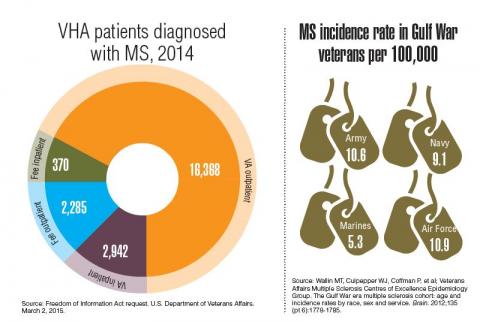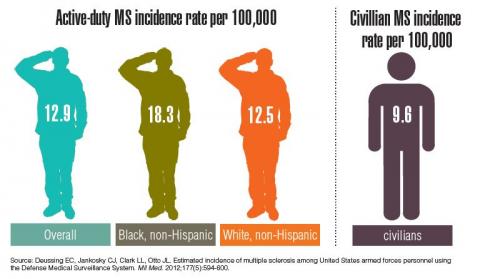Multiple sclerosis (MS) affects the central nervous system and is characterized by relapses (neurologic symptoms that appear rapidly and then improve) and remissions. It is typically diagnosed when patients are in their 20s or 30s. Treatments include using drug therapy to control the immune system to manage symptoms, with the ultimate goal of reducing relapse and slowing disease progression. Typically, MS affects women more than men at a rate up to 3 times higher, and studies have shown that race and geography also may play a role in the risk of acquiring MS.
Evidence also suggests that soldiers and veterans may be at greater risk of acquiring MS than is the public. For example, Wallin and colleagues identified 5,345 cases of MS among U.S. veteran that the authors deemed service-connected. The authors also noted that MS rates in veterans of the Vietnam era trended higher than those of World War II and the Korean War. Unfortunately, evidence suggests that this trend continued into the Gulf War and current eras.
Studying active-duty service members from January 2000 to December 2009, Deussing and colleagues found higher incidence rates for soldiers than seen in other populations and that revealed “a novel pattern.”



